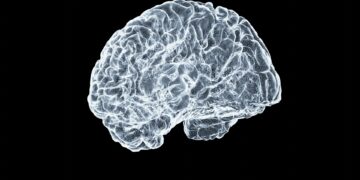It’s quietly rewriting a teen’s brain. A new study indicates that insufficient sleep in teenagers may lead to changes in brain function that increase the likelihood of impulsive and aggressive...
Read moreThere is a gut-brain connection. A recent study suggests that the natural bacteria found in a person’s mouth and digestive system—the microbiome—could play a role in the development and progression...
Read moreChildhood Pain Tied To Higher Endometriosis Risk A new study has found that women who experience traumatic events during childhood may face a higher risk of developing endometriosis as adults....
Read moreIt strikes when they sleep. A recent study suggests that mild sleep apnea may be more prevalent among female college athletes than previously recognized. Researchers found that about 25% of...
Read moreIt’s tied to elevated blood pressure. A recent study has found that children exposed to PFAS, also known as "forever chemicals," while in the womb may have a higher likelihood...
Read moreStudy Reveals CT Scans Superior For Detecting Cancer Early A recent study suggests that CT colonography may be more effective than stool DNA testing in preventing colorectal cancer. Published in...
Read moreIt offers hope against RSV. A new antibody injection called Enflonsia has been approved by the U.S. Food and Drug Administration to help protect infants from respiratory syncytial virus (RSV),...
Read moreIt’s time to check the medical cabinet. Several Zicam and Orajel nasal and baby teething swab products are being pulled from store shelves across the U.S. due to concerns about...
Read moreMonitor Huntington’s Symptoms In Real Time While most people use their smartphones for entertainment, communication, or staying informed, new research suggests those same devices could also play a crucial role...
Read moreIt’s important to have a healthy lifestyle. A recent study suggests that one marker of accelerated biological aging—shortened telomeres—may be linked to a higher risk of developing stroke and dementia....
Read more




































